9 reasons Dangote Refinery is such a big deal
)
The Dangote Refinery, launching today, May 22, 2023, marks a significant milestone in the oil industry.
With a construction cost of $25 billion, it is not only the largest refinery in Africa but also the world's largest single-train refinery.
This article delves into the key details surrounding the refinery, including its location, production capacity, employment opportunities, and comparisons to other notable refineries.
Unprecedented scale and investment
![The project is reported to have cost $25 billion [Guardian]](https://image.api.sportal365.com/process/smp-images-production/pulse.ng/26072024/0dc0cf60-6ba2-4e90-8706-0576bb83c081)
The Dangote Refinery is an extraordinary undertaking, standing as the largest single-train refinery globally. The project's cost, totalling $19 billion, signifies the magnitude of this industrial marvel.
Location and scale
The Dangote Refinery complex is situated in the Lekki Free Zone area of Lagos, Nigeria. Covering an expansive land area of approximately 2,635 hectares, the refinery surpasses the size of Victoria Island, a prominent area in Lagos. The strategic location provides access to local transportation routes, and accessibility to major oil markets from an international perspective.
Production capacity
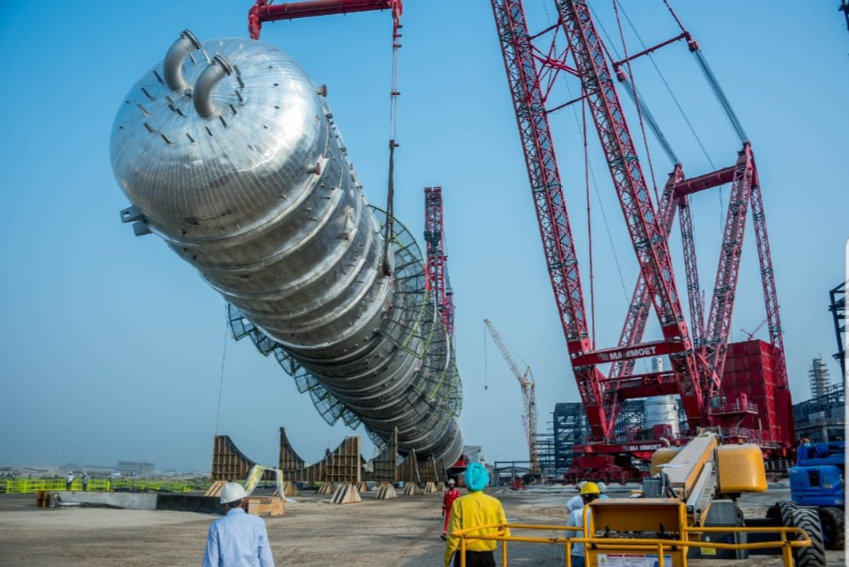
The Dangote Group announced that the refinery has an impressive capacity to produce 650,000 barrels of petroleum per day (bpd). This single-train refinery employs an innovative approach by utilising a single crude distillation unit (CDU) with an integrated distillation unit, distinguishing it from traditional multi-unit refineries.
Innovative refining technology
Distinguishing itself from traditional refineries, the Dangote Refinery employs a single-train configuration. Unlike larger refineries that rely on multiple distillation units, this refinery streamlines operations through the use of a single integrated distillation unit, enhancing efficiency and optimisation.
Also, incorporating state-of-the-art technology, the Dangote Refinery is equipped to process a wide range of crude oil types, including African and Middle Eastern crudes, as well as U.S. Light Tight Oil. The refinery design adheres to international emission norms, including World Bank, US EPA, European standards, and Department of Petroleum Resources (DPR) guidelines.
Comparative advantage
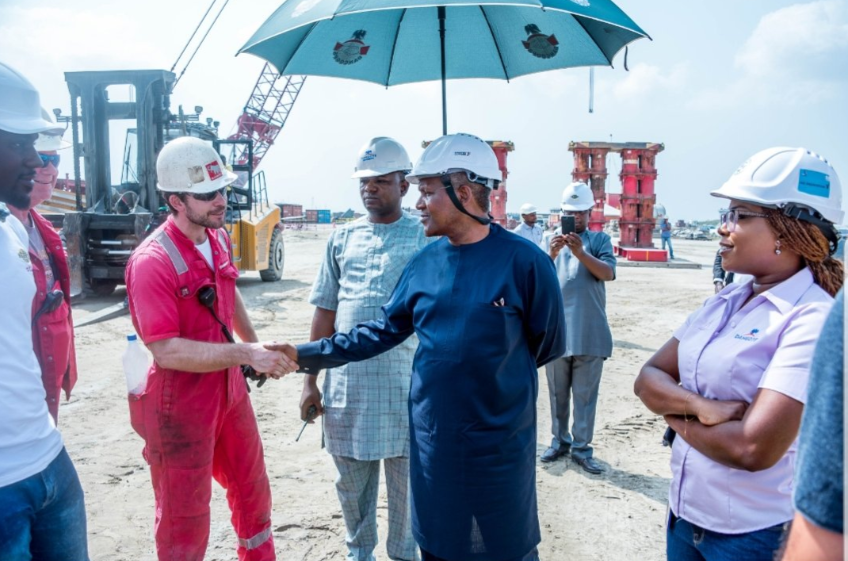
The significance of the Dangote Refinery lies in its claim to being the largest single-train refinery globally. Prior to its establishment, the Saudi Aramco Mobil Refinery (SAMREF), jointly owned by Saudi Aramco and ExxonMobil, held this distinction. SAMREF boasts a daily production capacity of 400,000 bpd, making it a formidable refinery.
However, with a production capacity of 650,000 bpd, the Dangote Refinery surpasses SAMREF, solidifying its position as the world's largest single-train refinery.
Employment opportunities
The construction and operation of such a colossal refinery generate a significant number of jobs. The Dangote Refinery is expected to provide employment opportunities to numerous individuals, contributing to local and national economic development.
Marine facilities and logistics
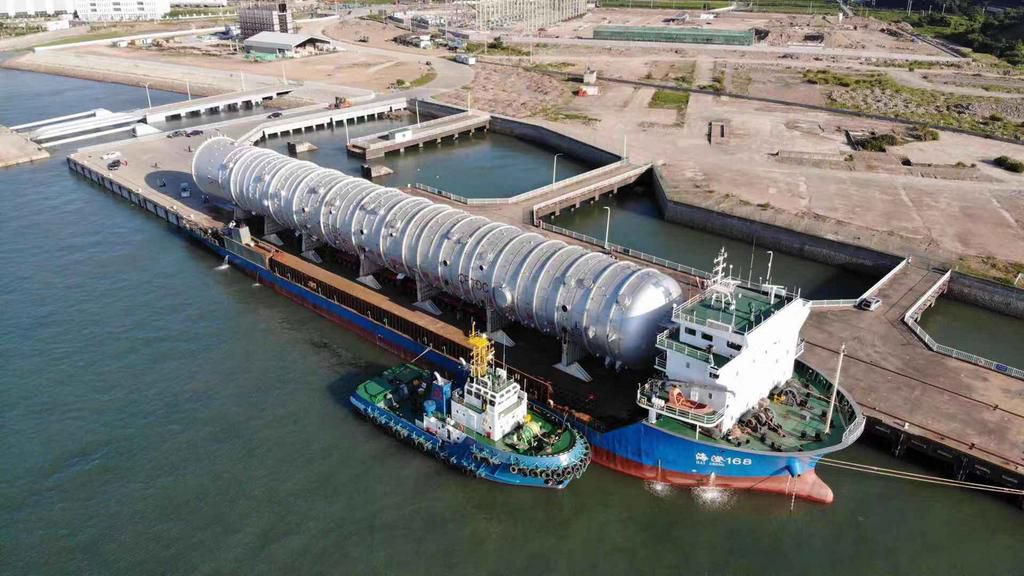
The Dangote Refinery features a self-sufficient marine facility that optimises freight operations. The facility includes five single-point mooring (SPM) systems, representing the largest single order of SPMs worldwide. This streamlined logistics infrastructure ensures efficient product transportation.
Impact on the Oil Industry
The establishment of the Dangote Refinery signifies a substantial leap forward for Nigeria's oil sector and the African continent as a whole. With its enormous production capacity, the refinery aims to reduce Nigeria's dependence on imported petroleum products while also boosting the nation's export potential.
Environmental Considerations
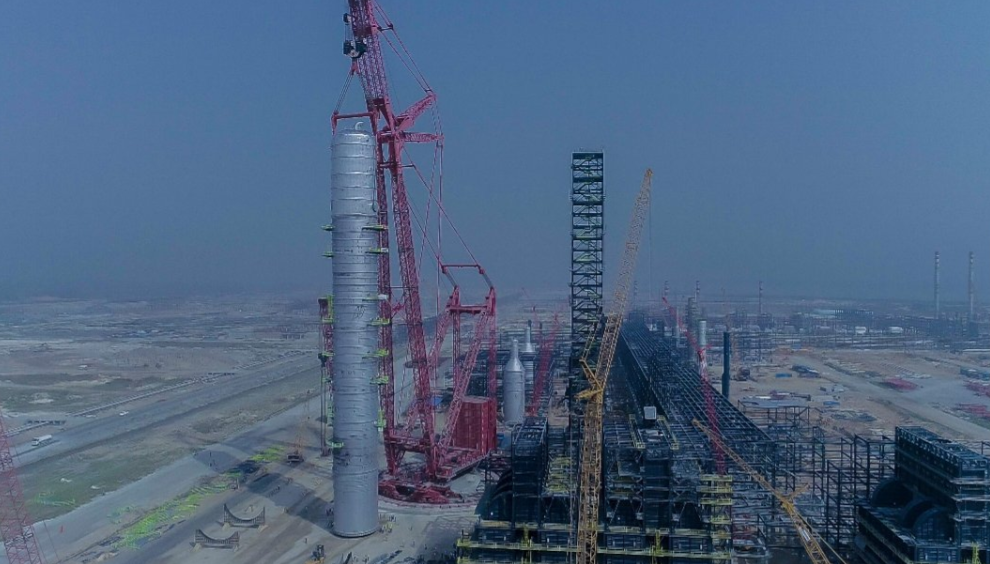
The refinery design prioritises environmental sustainability. It complies with stringent emission/effluent norms set by regulatory bodies such as the Department of Petroleum Resources (DPR). The production of diesel and gasoline adheres to Euro V specifications, reducing harmful emissions.
What next?
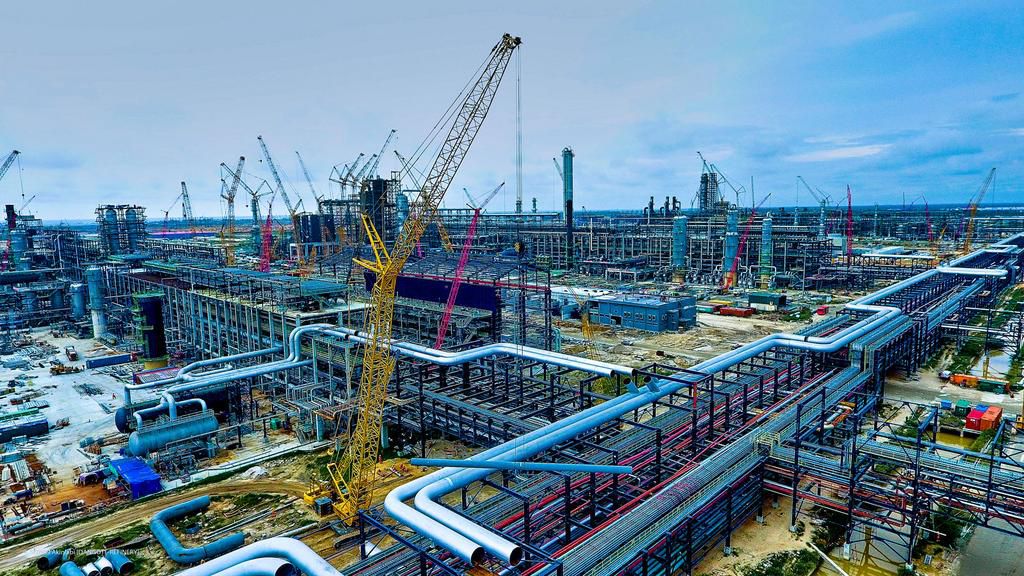
While the Dangote Refinery possesses remarkable potential, its actual operation and performance will be tested as it is launched and monitored overtime. Meeting and maintaining the refinery's ambitious production capacity will be a key factor in its success.

)
)
)
)
)
)